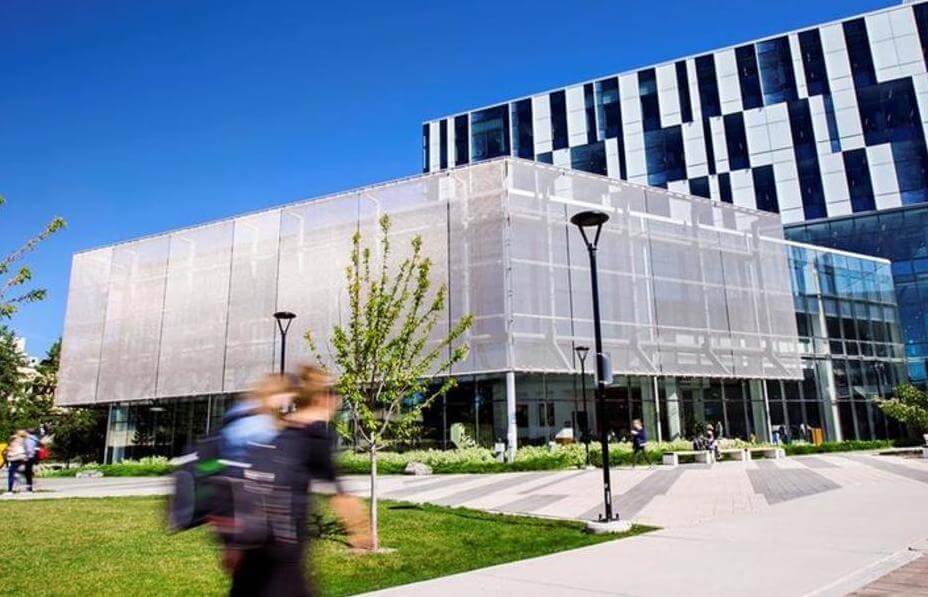Executive Summary
In the winter of 2016, after nearly a decade as Modern Campus clients, it became apparent to leaders and staff at the University of Calgary Division of Continuing Education (UCalgary CE) that they were not running their division as efficiently as possible. The difficult market conditions created by a downturn in the oil industry (the primary industry in Alberta) made maximizing resources crucial. UCalgary CE’s leaders knew they needed to focus on operational efficiency while also ensuring they were leveraging the full potential of the Destiny One student lifecycle management software. To accomplish this, they reengaged Modern Campus to deliver its Operational Health Check, offered by the experts in Destiny’s Professional Services Division, to identify areas of opportunity and improve business processes.
About University of Calgary Continuing Education
Continuing Education welcomes more than 20,000 registrants to some 1,200 courses annually. Offerings include professional development, certificates, stand-alone courses and seminars —all of which are designed with part-time learners in mind. Cont Ed students learn in ways, at times, and at a pace that fits into their lives.

Stand-alone and certificate courses are offered in areas of Adult Learning, Business and Professional Programs, Computing, English as a Second Language, Fine Arts and Visual Design, Fifty Plus, French as a Second Language, Languages of the World, and General Studies. Topics in General Studies vary, and include: anthropology and archaeology, astronomy and astrophysics, food and culture, history and society, finance, philosophy and religion, wellness, and writing skills. Upgrading for university preparation is also available.
Approximately 15 percent of all programs are delivered online. Customized training for groups—from public, corporate or non-profit organizations—is also available. Continuing Education instructors are professionals actively working in their fields of expertise and academics who teach regularly at the University of Calgary.
Identifying the Issues
The University of Calgary Division of Continuing Education (UCalgary CE) has been using Destiny One—Modern Campus’ student lifecycle management software application for higher education administrators serving non-traditional students—for nearly a decade. But, it took a physical office move to help UCalgary CE’s leaders realize that they could be more efficient in how they were using the software.
“As a result of the reorganization, various staff suddenly found that they had to work together and collaborate on different programs of study. However, the processes that they had developed over the years were markedly different than processes developed by other groups,” said Robert Wensveen, associate director of Continuing Education at the University of Calgary. “We quickly realized that we may be doing similar work but we were not executing in anywhere near the same manner.”
As with any software platform, it’s not hard for people to find their own ways to make the program work. Unfortunately, this leads to inconsistencies in how data is stored and processed, how instructors are managed and—ultimately—the experience an institution is able to deliver to its learners.
“Even though everyone in Continuing Education uses the Destiny One system, people are able to modify the way they work. People are very creative and they find ways to do things differently and in ways that suits them, their audience, or their belief of how things should be done,” said Wensveen. “Inconsistency in how you serve your clients leads to confusion and dissatisfaction.”
Moving to Address the Inconsistencies
It was time to take action, and the team at UCalgary CE decided to turn to Modern Campus’ new Operational Health Check. The Operational Health Check (OHC) is designed to optimize staff usage of Destiny One and address questions, issues or new requirements that have been identified by client schools since their initial implementation of the software.
Inconsistency in how you serve your clients leads to confusion and dissatisfaction.
Robert WensveenAssociate Director of Continuing Education, University of Calgary
What’s more, by bringing Modern Campus experts What’s more, by bringing Modern Campus experts onto campus, institutional leaders can integrate best practices, expertise and management strategies developed by leaders across the Destiny community of over 50 leading North American colleges and universities into their own practices.
“Even though I knew that we had become stagnant, it doesn't necessarily push you to move out of your comfort zone. Sometimes you need to bring somebody in to show you what you could be doing and present you with an unbiased view of your work,” said Wensveen. “There’s also an expertise that comes when you bring in somebody who has knowledge from supporting the product for other clients. Those product experts have a holistic view of how the product is deployed in different scenarios and in different schools. They brought that world vision to us and helped us to broaden our narrow vision.”
The Operational Health Check process, guided by the Modern Campus Professional Services team, focuses on several key activities:
- Review functional areas by roles to identify pain points
- Brainstorm solutions for identified challenges
- Deliver rapid knowledge transfer and product training
- Identify underutilized Destiny One functionality that could improve productivity and efficiency
- Provide subject matter experience based on best practices from other customer implementations
- Identify and prioritize configurations and enhancements
The Operational Health Check: Identifying and Overcoming Roadblocks to Success
The OHC process begins with a detailed questionnaire that helps bring non-traditional divisions together—from senior administrators to all product users—to identify gaps, issues and opportunities.
Though these discussions can be challenging, the outcomes are rewarding. Not only do they help to increase team cohesion in a very significant way, they also provide the Modern Campus consultant with the information they need to ensure that the time spent on-site is as productive as possible.
The OHC showed that we’re not as consistent or as efficient as we’d like to think we are, and there were several things our Destiny representative said and demonstrated that the staff wished they’d known all along.
“They were really self-reflective questions that pushed us to bring our staff together for some town halls to discuss our use of the Destiny One product,” recalled Wensveen. “Engaging in these discussions helped to set the priority of the agenda for the two days that our Destiny representative was here. He could target areas that he wanted to focus on for more information and demonstrations as a response to some of the pain points or inconsistencies that were identified in our preliminary sessions.”
Then, the Modern Campus consultant comes on site and works collaboratively with administrators and staff. Through interviews and working sessions, the consultant models critical business use cases, indentifies pain points, delivers solutions, provides subject matter expertise and much more.
“Since we went live in 2008, a great deal of functionality has been added and increased that we either didn’t know about or weren’t taking advantage of, all of which was brought to light because of the OHC,” said Wensveen. “The OHC showed that we’re not as consistent or as efficient as we’d like to think we are, and there were several things our Destiny representative said and demonstrated that the staff wished they’d known all along.”
After the on-site OHC, the Modern Campus consultant compiled a comprehensive Findings Report that, in addition to summary notes from each session, included observations, recommendations and action items from the sessions to address the unique immediate and long-term needs of the University of Calgary.
There’s also an expertise that comes when you bring in somebody who has knowledge from supporting the product for other clients. They brought that world vision to us and helped us to broaden our narrow vision.
Robert WensveenAssociate Director of Continuing Education, University of Calgary
The OHC is one way that Modern Campus exemplifies their core value: ‘We only succeed when our customers succeed.’ Modern Campus launched the OHC to help ensure that clients are always getting the most out of their investment in Destiny One.
“The OHC will go a long way toward easing the administrative work our staff are doing so that they can be more effective in providing more personalized customer service. It will also make a big difference in helping us to maintain the data in the system so that it’s entered in a consistent manner,” Wensveen said. “These things may seem small and incremental, but they all add up. These small changes combine to make a big difference and they all have ripple effects. Better consistency in data entry leads to better consistency in reporting which allows us to make better business decisions and plans for the future. These high-level strategic things have to start with how we are managing the input and how we are using the system.”

Tackle your biggest challenges